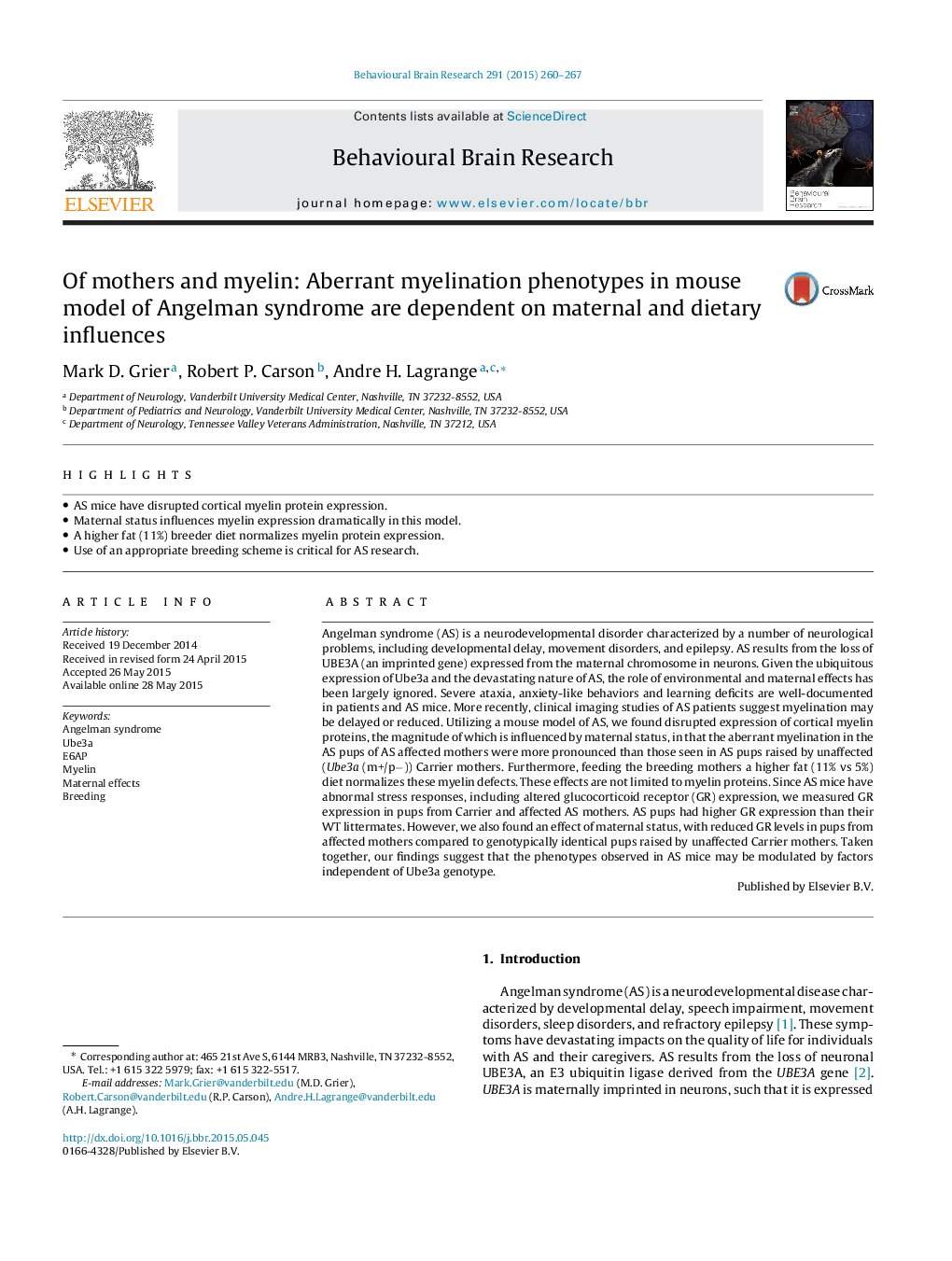| کد مقاله | کد نشریه | سال انتشار | مقاله انگلیسی | نسخه تمام متن |
|---|---|---|---|---|
| 4312396 | 1612941 | 2015 | 8 صفحه PDF | دانلود رایگان |

• AS mice have disrupted cortical myelin protein expression.
• Maternal status influences myelin expression dramatically in this model.
• A higher fat (11%) breeder diet normalizes myelin protein expression.
• Use of an appropriate breeding scheme is critical for AS research.
Angelman syndrome (AS) is a neurodevelopmental disorder characterized by a number of neurological problems, including developmental delay, movement disorders, and epilepsy. AS results from the loss of UBE3A (an imprinted gene) expressed from the maternal chromosome in neurons. Given the ubiquitous expression of Ube3a and the devastating nature of AS, the role of environmental and maternal effects has been largely ignored. Severe ataxia, anxiety-like behaviors and learning deficits are well-documented in patients and AS mice. More recently, clinical imaging studies of AS patients suggest myelination may be delayed or reduced. Utilizing a mouse model of AS, we found disrupted expression of cortical myelin proteins, the magnitude of which is influenced by maternal status, in that the aberrant myelination in the AS pups of AS affected mothers were more pronounced than those seen in AS pups raised by unaffected (Ube3a (m+/p−)) Carrier mothers. Furthermore, feeding the breeding mothers a higher fat (11% vs 5%) diet normalizes these myelin defects. These effects are not limited to myelin proteins. Since AS mice have abnormal stress responses, including altered glucocorticoid receptor (GR) expression, we measured GR expression in pups from Carrier and affected AS mothers. AS pups had higher GR expression than their WT littermates. However, we also found an effect of maternal status, with reduced GR levels in pups from affected mothers compared to genotypically identical pups raised by unaffected Carrier mothers. Taken together, our findings suggest that the phenotypes observed in AS mice may be modulated by factors independent of Ube3a genotype.
Journal: Behavioural Brain Research - Volume 291, 15 September 2015, Pages 260–267